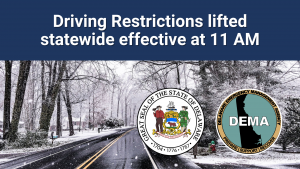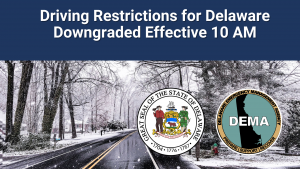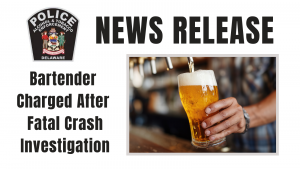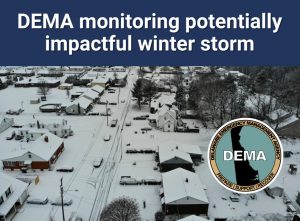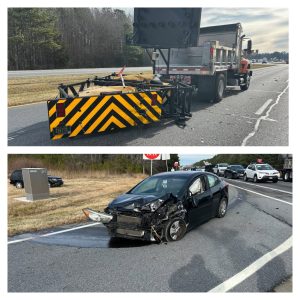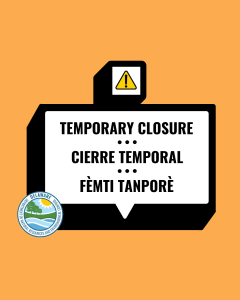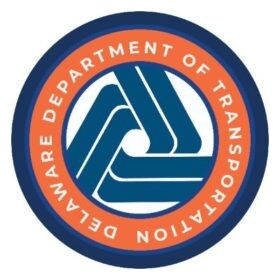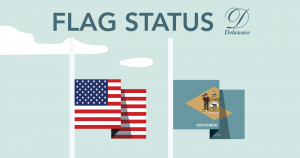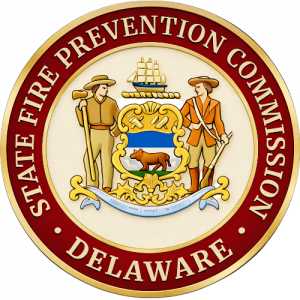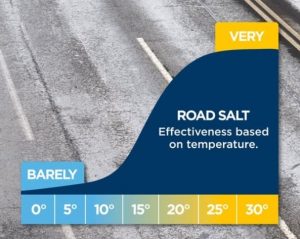DOVER – With many boaters heading out on the water for the long 4th of July holiday weekend, DNREC’s Division of Fish & Wildlife Natural Resources Police advise “steady as she goes” for practicing safe boating on Delaware waterways. “We need everyone on our waterways to be alert, use common sense and avoid actions that will put themselves, their passengers and other boaters at risk,” said Fish & Wildlife Natural Resources Police Chief Robert Legates.
Recent statistics from the U.S. Coast Guard show the top five primary contributing factors for boating accidents are operator inattention, improper lookout, operator inexperience, excessive speed and alcohol use. With these factors in mind, Sgt. John McDerby, Fish & Wildlife Natural Resources Police boating safety coordinator, offered some tips for safe boating:
Safety-check your vessel and equipment before getting underway
Preparations for putting your boat in the water each season should begin with servicing the motor or engine to ensure it is in good operating condition. Before heading out, always check engine oil levels and make sure you have enough gasoline in your tank, as well as making sure all navigational lights are working.
“Unexpected engine failure or running out of gas can strand you and your passengers – and this rarely happens at a convenient time or place,” Sgt. McDerby said. “Add nightfall, an approaching summer storm, rough seas or other hazards, and you place yourself and your passengers in danger.”
Additional items to check include the appropriate number of life jackets and a fully-charged cell phone and/or marine radio, as well as the following safety equipment: flares, a whistle or sound-producing device, and a fire extinguisher.
Wear a lifejacket
In 2015, the number of boating accident fatalities nationwide totaled 626, including 22 children under the age of 13, according to U.S. Coast Guard statistics. Where cause of death was known, 76 percent of fatal boating accident victims drowned. Of those drowning victims when lifejacket usage was known, 85 percent were not wearing a lifejacket.
“Like seatbelts in automobiles, we know without question that lifejackets save lives. Delaware law requires that children age 12 and younger wear a life jacket while underway in any vessel on Delaware waters,” Sgt. McDerby said, noting that no children age 12 or younger have died as a result of drowning in Delaware since this law was passed in 1991.
“Though lifejackets are not legally required to be worn by adults, they should also wear them, especially anyone with limited swimming skills,” Sgt. McDerby continued. “Boating accidents can happen very fast – and there’s no time to reach for a stowed lifejacket and put it on.”
While operating a vessel, stay alert and keep a sharp lookout
When operating an automobile, safe driving includes keeping your eyes on the road and avoiding distractions that take your attention elsewhere.
“The same applies to operating a vessel,” Sgt. McDerby said. “At all times, boaters need to watch where they are going, looking for other vessels and anything in the water that poses a hazard or redirects vessels.”
Things to look out for include: swimmers, water skiers and smaller vessels such as kayaks or jet skis; floating hazards such as large branches or logs in the water; shallow areas where your vessel can become grounded; and directional channel markers or other signage.
Watch your speed
As with land vehicles, boaters need to remember that the faster you drive your boat, the more you reduce your reaction time and increase your chances of being involved in an accident.
“Operating a vessel at excessive speed poses a hazard to you and your passengers as well as everyone else on the water around you, especially in areas with a lot of boat traffic – a common occurrence on popular waterways, especially during busy summer holiday weekends,” Sgt. McDerby said. Boaters should take particular care to observe posted slow-no-wake areas, he added.
Don’t drink and boat
According to Coast Guard statistics, alcohol use is the leading contributing factor in fatal boating accidents and was listed as the leading factor in 17 percent of the 626 boating-related fatalities reported nationwide in 2015, with 306 accidents resulting in 122 deaths and 258 injuries.
“Drinking while boating is a choice. The best way to minimize the risk of an accident is to make the wise choice – don’t drink and boat,” said Sgt. McDerby, noting that boaters should plan ahead to have a non-drinking designated boat operator aboard if alcohol is being consumed.
While it is not illegal for recreational boat operators to consume alcohol, the same blood alcohol limit used to measure intoxication in automobile drivers applies to boat operators: 0.08 or above is legally intoxicated. Sgt. McDerby also noted that boat operators above the limit put themselves and their passengers at risk, and those found operating under the influence face fines and potential jail time.
Delaware’s emphasis on boating safety education
Taking a boating safety course to improve your skills can help reduce the chances of an accident. Coast Guard statistics show that in states where instructional data was available, 71 percent of reported fatalities occurred on boats where the operator had not received boating safety instruction.
“Last year, we had one boating-related fatality and 25 reportable boating accidents in Delaware. We’d like to see the number of accidents go down,” Chief Legates said, noting that to date this year, Delaware has had 10 reported boating accidents and no fatalities.
Under Delaware law, all persons born on or after Jan. 1, 1978 must successfully complete a boating safety course in order to operate a boat in Delaware waters, including personal watercraft. “We recommend that everyone who is going to operate a boat in Delaware waters take a safety course first, regardless of their age,” Sgt. McDerby said.
Delaware’s 8-hour basic boating safety course, which fulfills Delaware’s mandatory boating safety class requirement, is offered in multiple locations statewide in one to four sessions. An online version of the course also is offered. Upon completing the course, boaters receive a boating safety certificate, with those required to take the course having to carry the certificate while boating as proof of course completion.
For more information, including the boating safety class schedule, access to the online Delaware Boating Handbook and other boating information, visit Delaware Boating Safety, or contact Sgt. John McDerby at 302-739-9913 or by email at john.mcderby@delaware.gov.
Contact: Sgt. John McDerby, Fish & Wildlife Natural Resources Police, 302-739-9913 or 302-354-1386, or Joanna Wilson, DNREC Public Affairs, 302-739-9902












